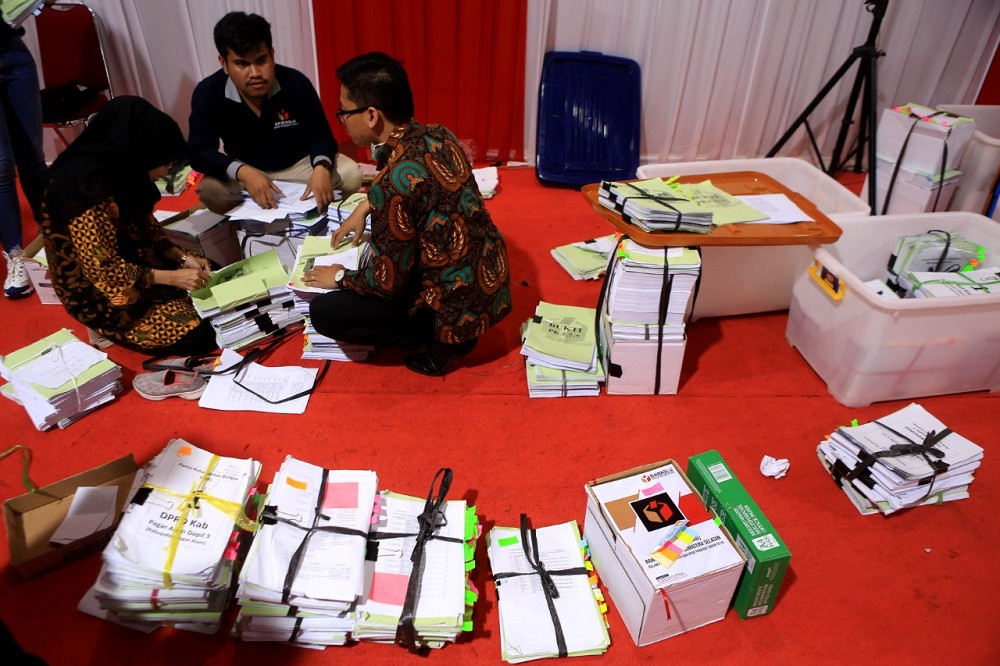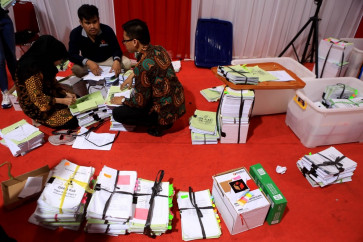Popular Reads
Top Results
Can't find what you're looking for?
View all search resultsPopular Reads
Top Results
Can't find what you're looking for?
View all search resultsElection trash is a recurrent challenge we can address
The environment ministry can establish a recycling program for election trash.
Change text size
Gift Premium Articles
to Anyone

Internet campaigning in Indonesian general elections has not yet become popular as candidates still prefer banners, posters or giant billboards to promote themselves and their platforms. Unsurprisingly, elections usually leave behind mountains of trash, scrap and other waste.
The problem of election trash occurs in any country, even developed countries like South Korea. South Korea produced at least 88 million disposable gloves during the 2022 presidential election, according to the Korea JoongAng Daily in 2022. During the COVID-19 outbreak, these gloves were employed to implement safety protocols. South Korea also created trash in the form of 400 million flyers and 52,545 placards during the 2017 election.
The Philippines, a Southeast Asian country with a similar political situation to Indonesia, went through the same. According to the Ecowaste Coalition (2022), the Philippines generated 206 tonnes of waste during the 2016 election. Then, in 2019, there was a non-significant fall in election waste to 200 tonnes. However, election waste grew sharply to 254 tonnes in the 2022 election, an increase of roughly 20 percent over 2016.
Indonesia is quite likely to face the same challenge. The government can utilize a variety of strategies to reduce the expansion of waste for the February 2024 elections. The simplest option is to adopt a repressive method.
The government, through the Environment and Forestry Ministry, can deal with electoral trash in accordance with the 2008 Waste Management Law, which stipulates it may collaborate with local governments to extend the ministry’s reach into rural areas of the country.
In addition to joining forces with local governments, the ministry can cooperate with local community volunteers to clear up election trash. Programs like these have been shown to be advantageous in the Philippines. The Philippine government bolstered a community called "Oplan Baklas" through a Municipal Environment and Natural Resource Officer (MENRO). The results show that Oplan Baklas cleaned up as much as 50-60 percent of the total waste generated during the 2022 elections.

Considering the rise of volunteers involved with sanitation and the environment, this tactic is feasible in Indonesia. The Pandawara Group is one of the most dedicated volunteer groups in sanitation and the environment. This volunteers gathered 27,066 kilograms of rubbish less than a year after the community became operational. With the government's support, communities like these may advance more methodically and widely throughout Indonesia, particularly in overcoming the 2024 election waste.
Your Opinion Matters
Share your experiences, suggestions, and any issues you've encountered on The Jakarta Post. We're here to listen.
Thank you
Thank you for sharing your thoughts. We appreciate your feedback.


















